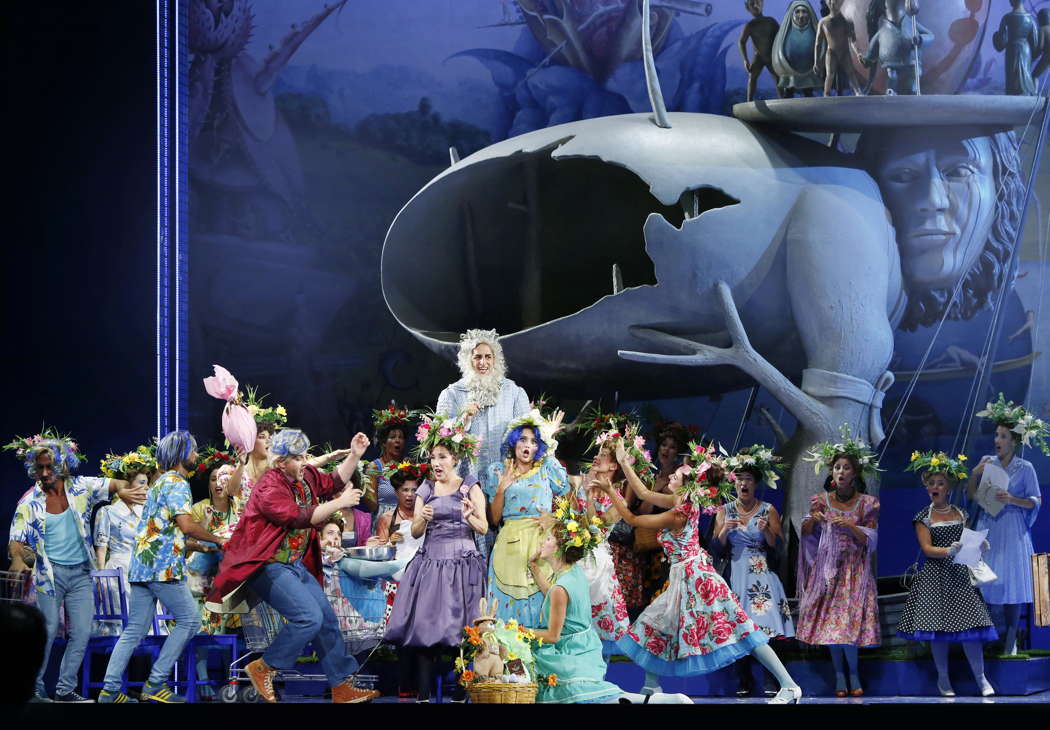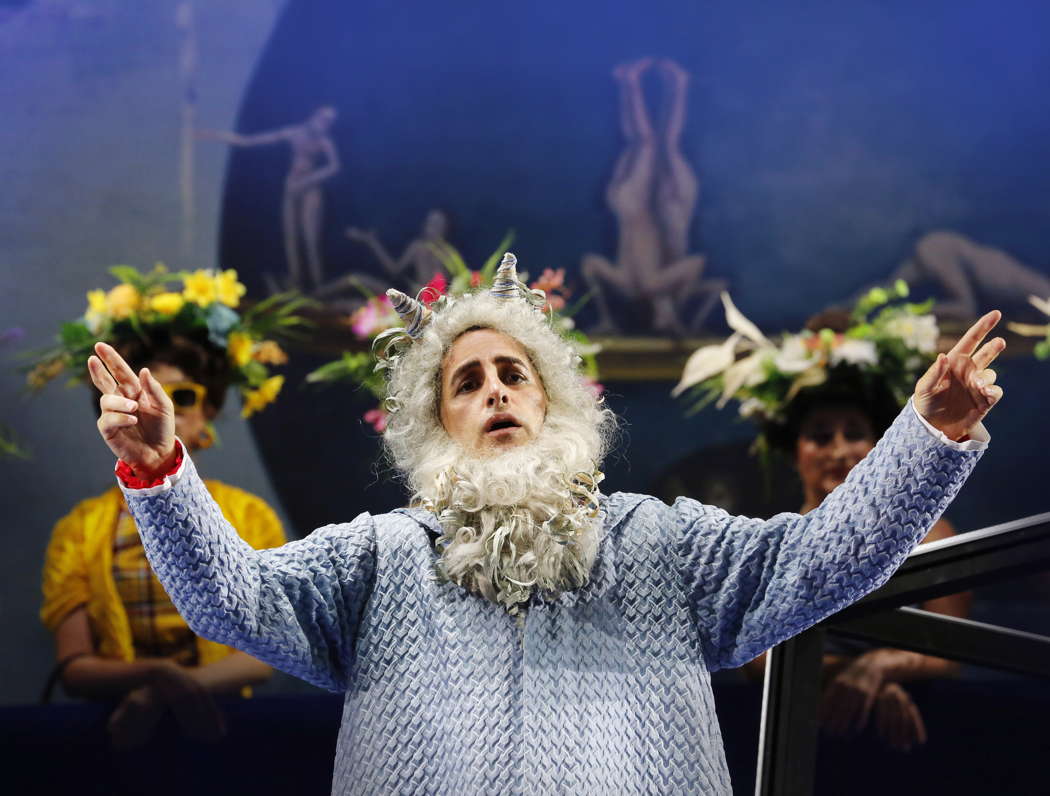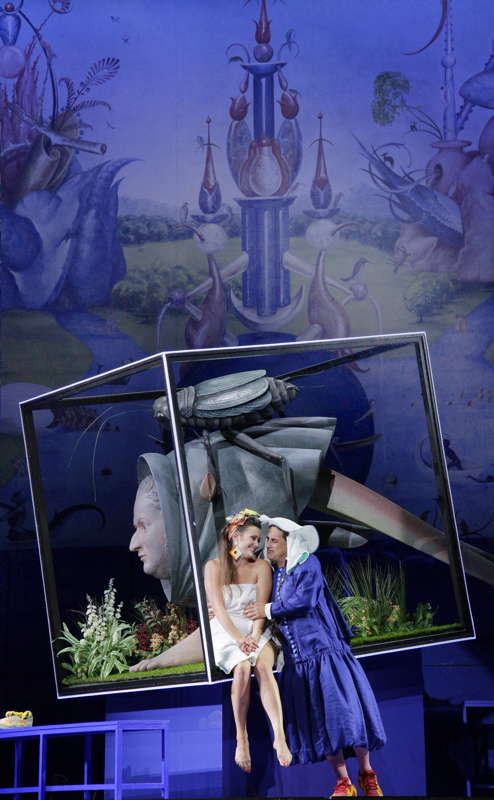- Housman
- Cláudio Franco de Sá Santoro
- Girolamo Frescobaldi
- NBR New Zealand Opera
- Handel: The King Shall Rejoice
- BBC series Civilisation
- Jessica Meyer
- Jenni Brandon
Unabashedly Erotic
The Rossini Opera Festival begins with a new production of 'Le Comte Ory', reviewed by GIUSEPPE PENNISI
The forty-third edition of the Rossini Opera Festival (ROF) was inaugurated in Pesaro, on 9 August 2022, with a new production of Le Comte Ory as a joint venture with the Teatro Comunale di Bologna. As curtains fell, there was much applause and also ovations for the musical part, and discussions on the direction and on the staging.
In his last book on Gioacchino Rossini, Giovanni Carli Ballola speaks of esprit de finesse, to refer to Le Comte Ory. In a cruder way, the American musicologist Paul Hume called the work 'an erection that lasts about two hours and a quarter'. Both are right: Le Comte Ory is the last unabashedly erotic opera composed by an Italian before the long silence of the senses of Verdi's melodrama period, which ended with Puccini's Manon Lescaut at the sunset of the nineteenth century. In 1828, the thirty-seven-year-old but already bigoted Rossini had testosterone to sell and, although politically reactionary and suffering from a venereal disease, he made good use of it in that Paris where he would live much of his human adventure. Rossini used a libretto inspired by a medieval novel. At the time of the Crusades, Count Ory tries them all to bring under the sheets the chaste Countess, who also attracts the teenage page Isolier. To this end, he disguises himself first as a hermit, then as a nun in order to be able to enter a castle whose doors have been locked in a triple mandate also because of the bad reputation he has made for himself. Just when he thinks he has come to the point, he ends up, at the dark of the night, in a bed where the Countess of Formoutiers is already with the page Isolier. In the confusion, he flirts with the young man, who does not like it, just as husbands and boyfriends of the women that the erotomaniac Ory and his squires would have liked to possess, return to the castle.
This is the third time that the ROF has proposed new versions of Le Comte Ory. For the first, in 1984, Pier Luigi Pizzi presented a very elegant work and at the same time, kept strictly faithful to the booklet. That staging was also seen at the Teatro dell'Opera in Rome. In 2003, at the ROF, Luiss Pasqual transported the story to the early twentieth century, in a party where boys and girls in tuxedos and evening dresses represent the opera, a functional choice to the scent of eros that is felt from the first to the last note. Rossini, now close to retirement with a gold clause awarded by the King himself, after a long judicial dispute, obtained at the age of thirty-eight, looks with irony at the world and, therefore, also at the eros that spurts joyfully from every note.
In this new production, Hugo de Ana - direction, sets and costumes: the lighting is signed by Valerio Alfieri - is inspired by the triptych The Garden of Delight by Hieronymus Bosch, but the outcome is not satisfactory: too many actions and too much chaos on stage. It looks more like the old mad movie Hellzapoppin than Bosch. The audience, however, applauded de Ana and his collaborators warmly when, at the end of the performance, they came to greet them.

A scene from Le Comte Ory at the Rossini Opera Festival, featuring Juan Diego Flórez as Ory and Monica Bacelli as Ragonde. Photo © 2022 Amati Bacciardi
The Rai orchestra is led by Diego Matheuz, with brio. The real triumph of the evening in the role of Ory was Juan Diego Flórez, 'discovered' by the ROF in 1986. Despite the passing of the years, he is still a tenor of agility of the highest standards.

Juan Diego Flórez in the title role of Le Comte Ory at the Rossini Opera Festival. Photo © 2022 Amati Bacciardi
The Countess of Julie Fuchs is very effective both in acting and in vocalizing. She uses the very large register and coloratura in a brilliant manner.

Julie Fuchs as the Countess and Juan Diego Flórez as Ory in Le Comte Ory at the Rossini Opera Festival. Photo © 2022 Amati Bacciardi
The page Isolier is Maria Kataeva, a young Russian mezzo soprano, perfect in the disguise as a teenager and very agile, especially to run towards the hardest notes. Monica Bacelli, a frequent guest of the Rossini Opera Festival, is Ragonde, friend of the Countess of Formoutiers. Ory's tutor Raimbaud, who made the count an expert erotomaniac, is the Polish baritone Andrzej Filonczyk, who was quite good.
Copyright © 13 August 2022
Giuseppe Pennisi,
Rome, Italy

ARTICLES ABOUT THE ROSSINI OPERA FESTIVAL




